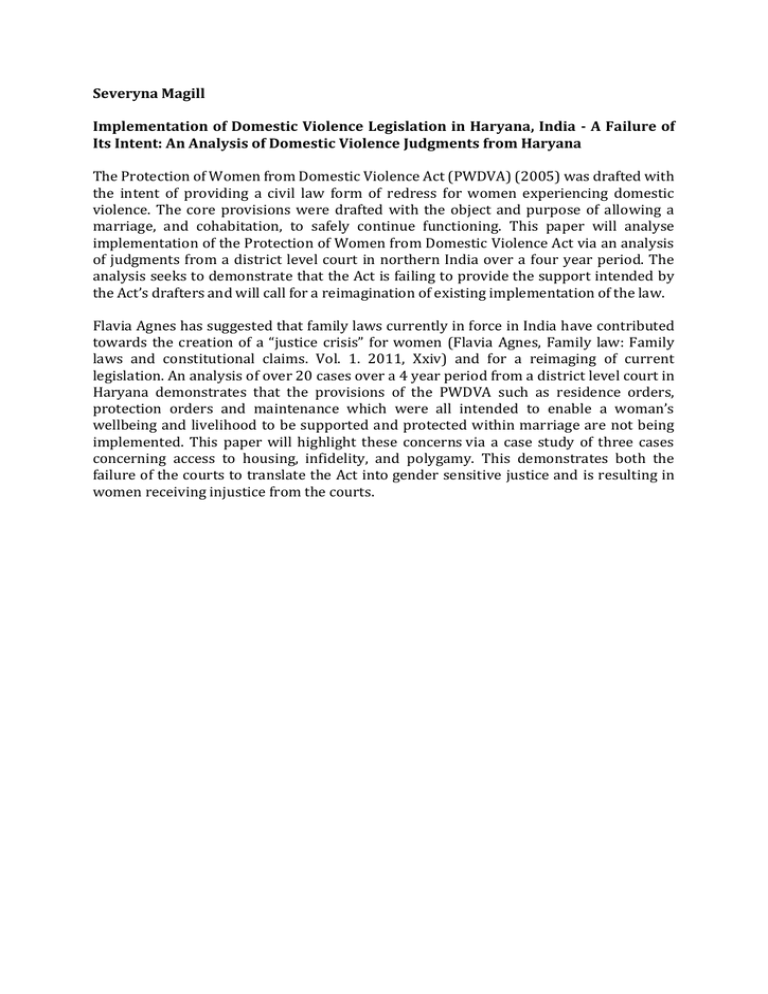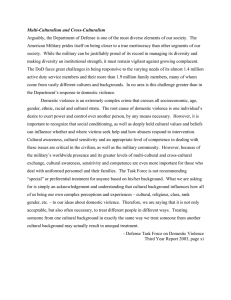Severyna Magill Implementation of Domestic Violence Legislation in Haryana, India - A... Its Intent: An Analysis of Domestic Violence Judgments from Haryana
advertisement

Severyna Magill Implementation of Domestic Violence Legislation in Haryana, India - A Failure of Its Intent: An Analysis of Domestic Violence Judgments from Haryana The Protection of Women from Domestic Violence Act (PWDVA) (2005) was drafted with the intent of providing a civil law form of redress for women experiencing domestic violence. The core provisions were drafted with the object and purpose of allowing a marriage, and cohabitation, to safely continue functioning. This paper will analyse implementation of the Protection of Women from Domestic Violence Act via an analysis of judgments from a district level court in northern India over a four year period. The analysis seeks to demonstrate that the Act is failing to provide the support intended by the Act’s drafters and will call for a reimagination of existing implementation of the law. Flavia Agnes has suggested that family laws currently in force in India have contributed towards the creation of a “justice crisis” for women (Flavia Agnes, Family law: Family laws and constitutional claims. Vol. 1. 2011, Xxiv) and for a reimaging of current legislation. An analysis of over 20 cases over a 4 year period from a district level court in Haryana demonstrates that the provisions of the PWDVA such as residence orders, protection orders and maintenance which were all intended to enable a woman’s wellbeing and livelihood to be supported and protected within marriage are not being implemented. This paper will highlight these concerns via a case study of three cases concerning access to housing, infidelity, and polygamy. This demonstrates both the failure of the courts to translate the Act into gender sensitive justice and is resulting in women receiving injustice from the courts.







